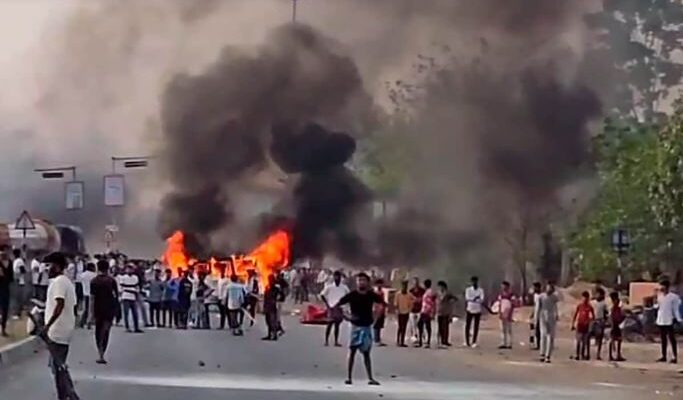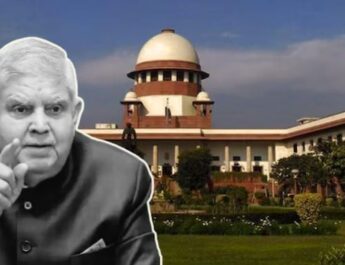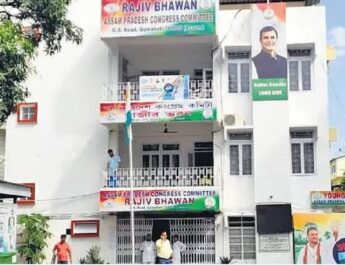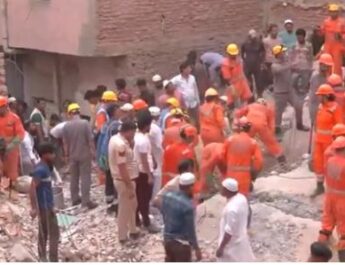Kolkata: A new wave of violence erupted in Bengal, specifically in the South 24 Parganas district, on Monday, triggered by proposed amendments to the Waqf laws that dictate the management of Muslim charitable properties.
Footage captured during the unrest depicted police motorcycles ablaze and a police bus overturned with its windshield shattered. The videos also revealed a significant police presence on the streets.
As reported by the news agency PTI, the clashes began when supporters of the Indian Secular Front (ISF) confronted law enforcement in the Bhangar area, resulting in injuries and the destruction of police vehicles.
The ISF supporters were reportedly route to Ramlila Maidan in central Kolkata to participate in an anti-Waqf law rally featuring remarks from the party’s MLA, Naushad Siddique.
However, police stated that no authorization had been granted for the rally, which proceeded regardless. During the event, Mr. Siddique characterized the new legislation as “an attack on Muslims and an assault on the Constitution,” and tensions escalated when attendees attempted to breach police barricades.
A senior police official confirmed that several officers sustained injuries during the confrontations; witnesses reported that police resorted to a lathi-charge to disperse the crowd, resulting in at least one protester being injured.
In response, the ISF highlighted Chief Minister Mamata Banerjee’s assertion that her administration would not enforce the new Waqf laws, questioning why their protest was suppressed.
This incident follows last week’s violence in the Muslim-majority Murshidabad district, where three individuals lost their lives, railway tracks were obstructed, and incidents of arson and vandalism occurred.
To date, over 200 individuals have been arrested in connection with that unrest.
The violence in Murshidabad was brought up in the Supreme Court earlier today, where a petitioner requested a court-monitored investigation by a central agency into the violent incidents.
There has been a call for the Bengal government, facing pressure from the opposition BJP in light of the upcoming elections, to clarify the reasons behind the failure of the law-and-order situation.
Parliament Approves Waqf Amendments
This month, Parliament approved the contentious Waqf (Amendment) Bill following over 30 hours of intense debate between the ruling BJP and the opposition, including the Trinamool Congress.
Significant changes introduced by the amended Waqf laws include the requirement for the appointment of two non-Muslim members to both state Waqf boards and the central Waqf council. Additionally, individuals wishing to make donations must certify that they have been ‘practicing Muslims’ for a minimum of five years.
Concerns raised by Muslims and the opposition, particularly regarding the potential for central government control over Waqf boards, were dismissed by Union Minority Affairs Minister Rijiju during the bill’s presentation in Parliament. He asserted that non-Muslims would not be able to interfere in the operations of the Waqf Board, as its management, establishment, and beneficiaries would continue to be drawn from the Muslim community.
The Supreme Court is scheduled to hear 15 petitions contesting the new Waqf laws on April 16.




